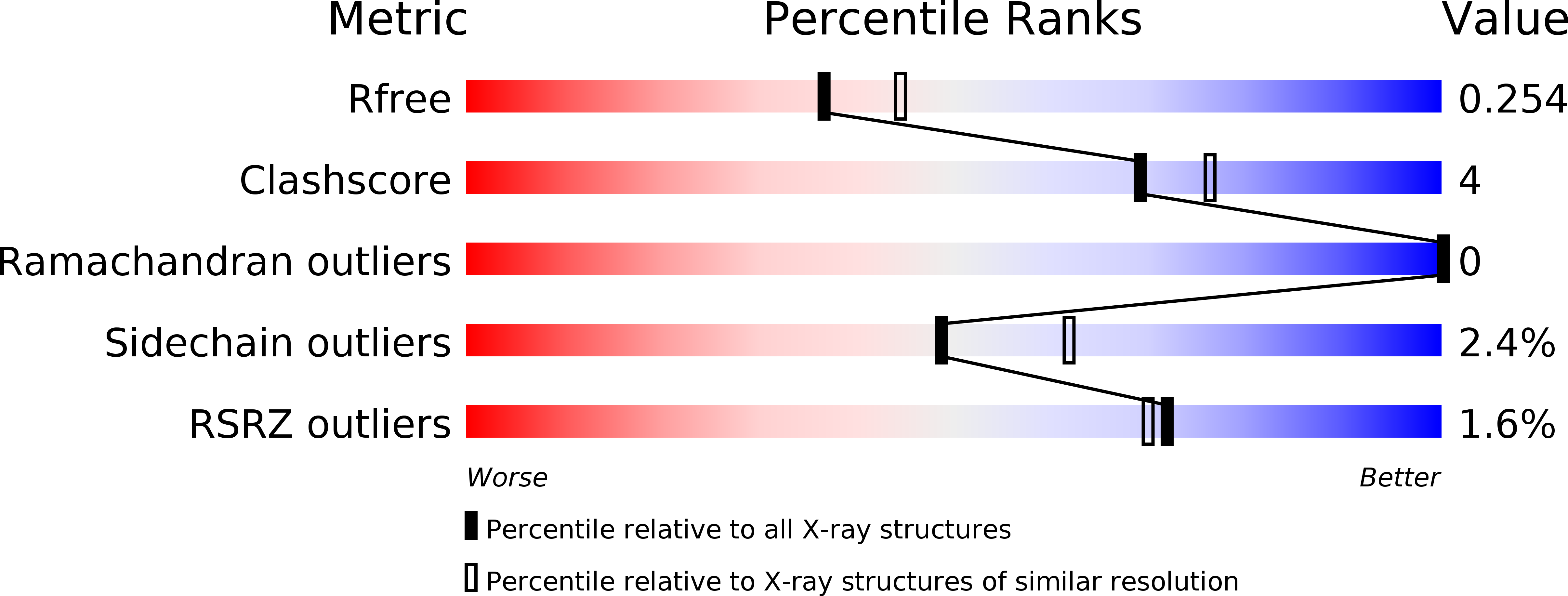
Deposition Date
2015-02-26
Release Date
2015-09-16
Last Version Date
2024-10-30
Entry Detail
PDB ID:
4YH1
Keywords:
Title:
Structure of Human Scp1 bound to cis-proline peptidomimetic CTD phospho-Ser5 peptide
Biological Source:
Source Organism(s):
Homo sapiens (Taxon ID: 9606)
synthetic construct (Taxon ID: 32630)
synthetic construct (Taxon ID: 32630)
Expression System(s):
Method Details:
Experimental Method:
Resolution:
2.20 Å
R-Value Free:
0.24
R-Value Work:
0.19
R-Value Observed:
0.19
Space Group:
C 1 2 1


